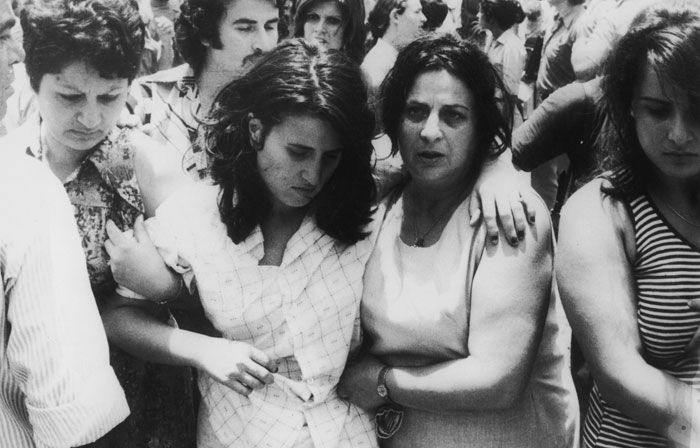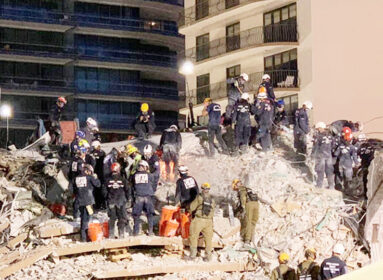
They Criticized the Entebbe Rescue, Too
By Rafael Medoff
It may seem perplexing that anybody would criticize Israel’s rescue of four hostages from Gaza. But in 1976, there was criticism of Israel’s rescue of hostages from Entebbe, too.
While Israelis celebrated the June 8 rescue of hostages held by Arab terrorists and civilians in Gaza, United Nations special rapporteur Francesca Albanese accused the Israeli commandos of “perfidiously hiding in an aid truck” in order to enter the neighborhood where the hostages were imprisoned.
MSNBC host Ayman Mohyeldin asserted that the rescuers’ tactics “raise(d) moral and ethical questions,” while former MSNBC host Krystal Ball denounced celebrations of the rescue as “depraved.”
In June 1976, Palestinian Arab terrorists hijacked a French plane on its way to Israel, and forced it to fly to the Entebbe airport in Uganda. There they released the non-Jewish passengers, and held the remaining 106 passengers and crew hostage, demanding the release of terrorists who were imprisoned in Israel. Ugandan dictator Idi Amin was deeply sympathetic to the terrorists, and Ugandan soldiers helped the hijackers guard the hostages.
On July 4, Israeli commandos raided the airport and freed the hostages. All seven terrorists, and several dozen Ugandan soldiers, were killed. The only rescuer killed was the raid’s leader, Yonatan Netanyahu, brother of Israel’s current prime minister. Mrs. Dora Bloch, an elderly passenger who had been taken to a local hospital, was murdered there by Ugandan soldiers.
Most of the world celebrated the rescue raid on Entebbe. But not everybody.
The Organization of African Unity, consisting of several dozen African countries, accused Israel of “wanton aggression” and demanded reparations for damage to the airport. The Soviet and Chinese governments denounced what they called “the Zionist aggression.”
United Nations Secretary-General Kurt Waldheim charged that Israel had committed a “serious violation of the sovereignty” of Uganda. A few years later, Waldheim’s past as a Nazi war criminal was exposed. (However, that did not prevent his election as president of Austria in 1986.)
The Mexican government criticized Israel’s “flagrant violation” of Ugandan sovereignty, and declared its “firm rejection of the use of armed force by any state as a means of trying to solve conflicts.”
The Mexican position was especially surprising because just months earlier, it had explicitly promised to refrain from anti-Israel policies. That promise was made in order to secure an end to the boycott of Mexico announced by Jewish organizations following its support of the infamous Zionism-is-racism resolution at the UN in 1975.
The French government’s response to the Entebbe rescue was particularly troubling, given the fact that it was a French plane that was hijacked, and French crew members who were held hostage. The French Foreign Ministry issued a brief statement which expressed satisfaction at the rescue, but emphasized its condemnation of the casualties, almost all of whom were the terrorists or the soldiers who assisted them.
A spokesperson for the Air France crew read a statement hailing President Amin for his “constant care to ensure our safety, our material comfort and even our health.” The statement appeared to have been dictated by French officials.
The U.S. government publicly praised the Israeli rescue mission, but it also introduced an “even-handed” resolution at the UN Security Council. While condemning the hijacking, the resolution also affirmed “the need to respect the sovereignty and territorial integrity of all States.” The resolution did not secure enough votes to pass, so it was withdrawn.
At the same time—according to declassified documents—Secretary of State Henry Kissinger informed Israel’s ambassador in Washington that because the Israelis had used US equipment in the raid, “we will have to put a temporary freeze on military shipments.”
Ambassador Simcha Dinitz replied: “You are kidding me.” Kissinger was not kidding. “You know you have no right to do this without prior consultation,” he admonished the ambassador. Dinitz argued that the relevant U.S. law applied to “only weaponry, not equipment.” But Kissinger insisted that the US-made C-130 transport planes were a “military version” of that aircraft and therefore could not be used outside Israel’s borders. Kissinger could have looked the other way; instead, his response was to penalize Israel following its miraculous rescue of the hostages.
Israel’s prime minister in those days was Yitzhak Rabin, and the government was ruled by the Labor Party—a reminder that whether Israel’s government is from the political left or the right, and whether its leader is named Rabin or Netanyahu, there will always be those who complain when Israel takes action to defend the lives of its citizens.
Dr. Rafael Medoff is founding director of The David S. Wyman Institute for Holocaust Studies and author of more than 20 books about Jewish history and the Holocaust. His latest is Cartoonists Against Racism: The Secret Jewish War on Bigotry, coauthored with Craig Yoe.
As published in the Jewish Journal of Los Angeles – June 12, 2024
PHOTO: Entebbe
CAP: Yoni Netanyahu, in a photograph taken shortly before his death at Entebbe in 1976. (GPO, Wikimedia)








 Southern New England Jewish Ledger
Southern New England Jewish Ledger












